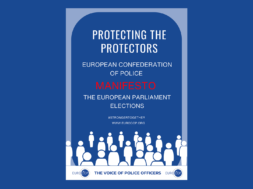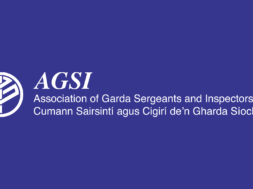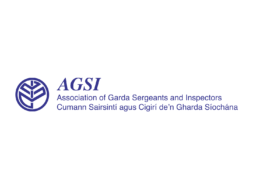The European Confederation of Police (EuroCOP) along with the Irish Congress of Trade Unions (ICTU) have released media statements responding to the decision of the European Committee of Social Rights.
Read the EuroCOP press release below
EuroCOP welcomes the Conclusion of the European Committee of Social Rights on the rights of Irish police officers
Luxembourg – 13 May 2014 – The European Confederation of Police (EUROCOP) welcomes the conclusions of the European Committee of Social Rights (the Committee) regarding the complaint lodged by EUROCOP against Ireland in June 2012. The Committee concluded that the complaint was admissible under Articles 5 and 6 of the European Social Charter (the Charter).
The complaint highlights the restrictions placed upon national police associations, notably the Association of Garda Sergeants and Inspectors (AGSI), whereby they do not enjoy full trade union rights including the right to join an umbrella organisation.
The Committee upheld the complaint under Article 5 of the Charter on grounds of the prohibition of police representative associations from joining national employees’ organisations.
The Committee also found that Irish legislation failed “to ensure the sufficient access of police representative associations into pay agreement discussions,” as required under Article 6§2 of the Charter, and held that “the prohibition of the right to strike of members of the police force amounts to a violation of Article 6§4 of the Charter.”
EUROCOP commends the Committee’s conclusion and emphasises the right of the police and their representative associations to adequate trade union representation and equal access to channels for social dialogue. EUROCOP’s President, Anna Nellberg Dennis noted that “the Committee’s conclusions are a victory not only for the Irish police, but have important impacts upon police forces across Europe. By highlighting the fundamental importance of police rights, and educating European police officers about their rights to organise and to bargain collectively, the Committee has helped us draw more attention to those Member States that are failing to adequately provide for the social rights of their police officers.”
EuroCOP expresses its hope that the subsequent resolution by the Committee of Ministers of the Council of Europe will include a clear recommendation for Ireland to amend its national legislation to ensure police officers’ rights are upheld according to the articles of the European Social Charter.
The European Confederation of Police (EuroCOP) is the umbrella organisation for 36 police unions and staff organisations in Europe based in Luxembourg. It represents the interests of over half a million police officers in 25 European countries, dealing with issues which range from police cooperation across borders to a safer working environment for police officers on the street.
Read the ICTU Press release below
Ms Lynch said the government must “now take measures to bring the situation here into conformity with the Charter. For example, under section 18.2 of the Garda Síochána Act, the Minister for Justice is empowered to authorise the AGSI so they can apply for affiliation to Congress.”









